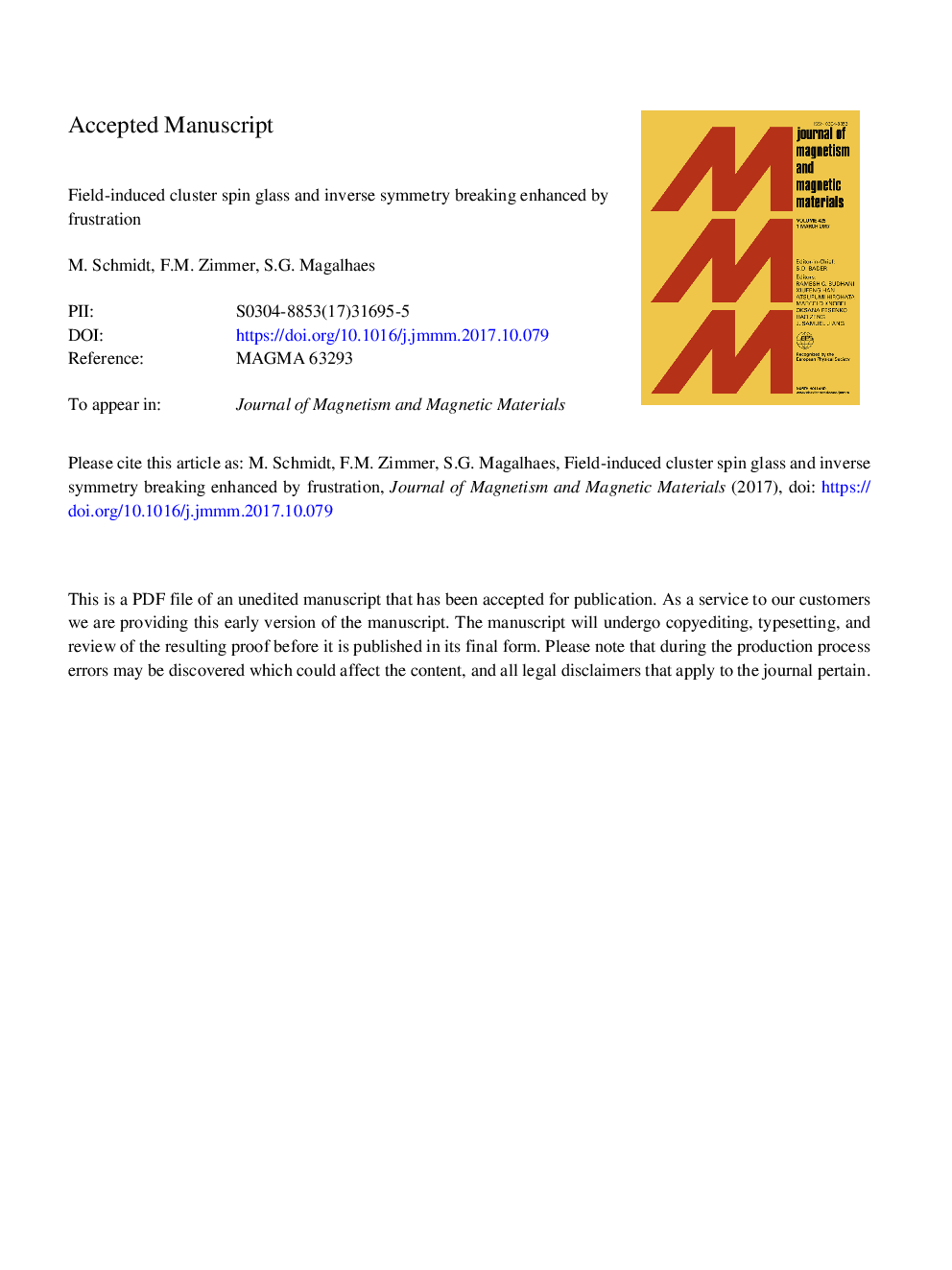ترجمه فارسی عنوان مقاله
شیشه چرخش خوشه ناشی از فیلد و شکست تقارب معکوس ناشی از سرخوردگی
عنوان انگلیسی
Field-induced cluster spin glass and inverse symmetry breaking enhanced by frustration
| کد مقاله | سال انتشار | تعداد صفحات مقاله انگلیسی |
|---|---|---|
| 125659 | 2018 | 10 صفحه PDF |
منبع

Publisher : Elsevier - Science Direct (الزویر - ساینس دایرکت)
Journal : Journal of Magnetism and Magnetic Materials, Volume 449, 1 March 2018, Pages 440-446

